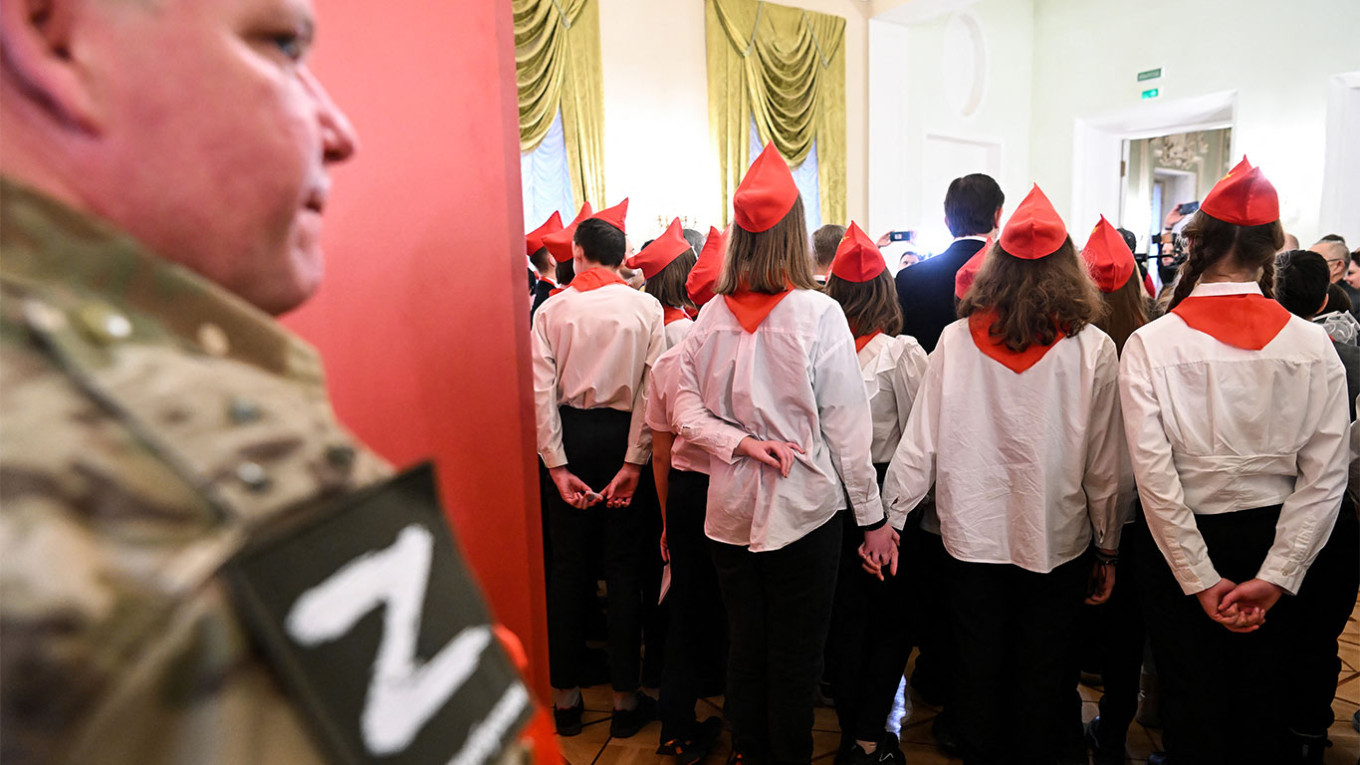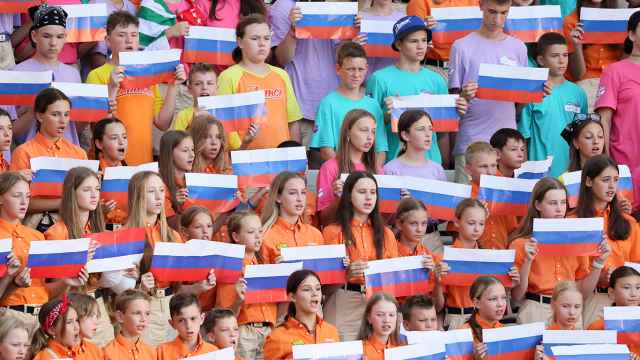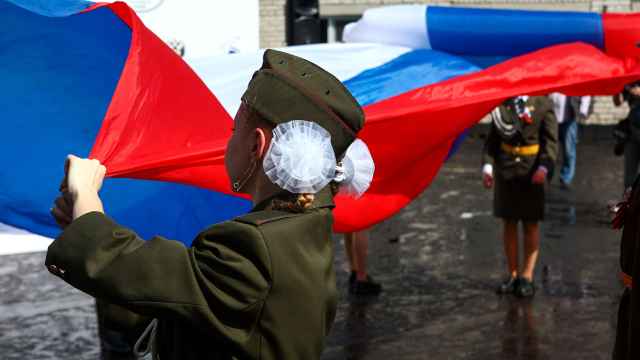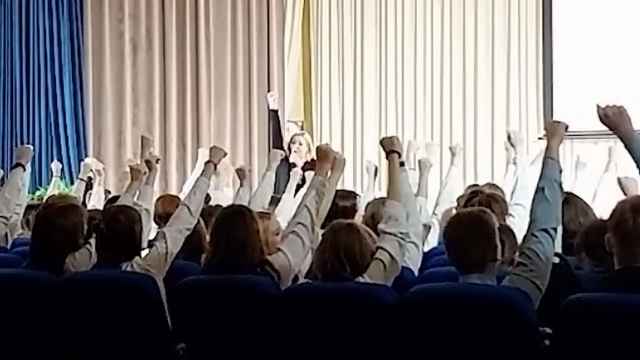A group of Russian teachers has quit their jobs after refusing to allow Ukraine war veterans to teach required lessons that they believe promote war to children.
The incident reflects the dilemma facing Russian teachers who wish to keep politics out of the classroom.
At least 10 teachers and the principal of School No. 12 in the Urals city of Perm resigned following pro-war activists’ accusations that they were undermining a patriotic course called “Important Conversations,” which was introduced in Russian schools shortly after the invasion of Ukraine last year.
“I believe that advocating for war is wrong, which is why I am currently unable to continue working at the school,” one of the teachers who resigned told The Moscow Times.
“It’s really hard for kids when some teachers say that a war is terrible and at the same time some propagate war to them,” said the teacher, who requested anonymity due to concerns for her safety.
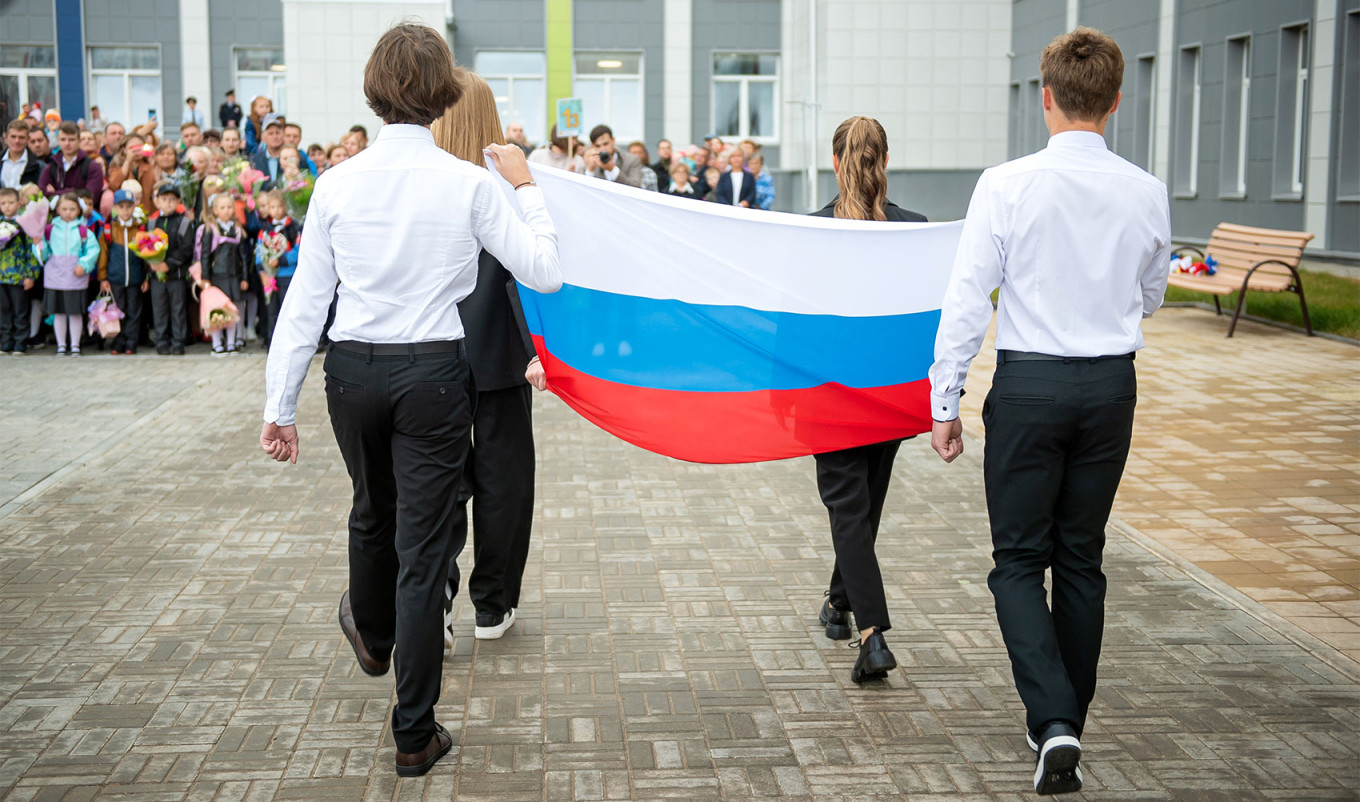
Perm’s School No. 12 first found itself embroiled in controversy in May, when a pupil’s parent invited Ukraine war veterans to give an "Important Conversations” lecture. School authorities initially rejected the proposal, saying that the school was apolitical.
“Many teachers understood that people who had returned from the war should not be allowed to [educate] children, as they might suffer from post-traumatic stress syndrome," the teacher told The Moscow Times.
It wasn’t long before the school came under pressure from pro-war groups, the teacher told The Moscow Times.
A local pro-war group that had reportedly been invited to give a lecture at the school accused school authorities of being “filled with hatred for patriotism, for the special military operation and the actions of our state.”
According to the teacher who spoke to The Moscow Times, pro-war activists also filed a complaint with the city's education department and visited the school, “yelling at teachers.”
The incident prompted the school principal to quit along with 10 other colleagues, the independent Mediazona news website reported last month.
Russia has stepped up efforts to push "patriotic" education in schools since the launch of its offensive against Kyiv last year. Critics say the initiative seeks to teach children a revisionist version of history and to indoctrinate them against Ukraine and the West from an early age.
Starting with the 2022-23 school year, Russian schools have begun each week with a flag-raising ceremony and the national anthem, followed by the "Important Conversations” classes.
These lessons, based on Education Ministry recommendations, aim to teach students about the country’s values and history as well as Moscow’s narrative of its offensive on Ukraine.
On Sept. 1, President Vladimir Putin opened the new school year by holding an “Important Conversations” lesson with a group of 30 students.
“Important Conversations” is just one of several changes that the Russian government has implemented in schools since the start of the war.
From September 2023, Russian high school students in the 10th and 11th grades will undergo basic military training, in particular, learning to use Kalashnikov assault rifles and hand grenades, fly drones and administer first aid.
This school year, Russia also introduced new 10th and 11th-grade history textbooks that justify the invasion of Ukraine as self-defense and a legitimate act.
Since the launch of the war, some Russians, including school teachers and university professors, have lost their jobs after expressing anti-war sentiments.
According to the teacher who spoke to The Moscow Times, children are inevitably drawn to discussions about the war while at school.
“The question was constantly in the classroom — when the war began, many were frightened, and worried about themselves and their parents,” the teacher said. “Those who were older correlated the events of World War II [with] the war in Ukraine. They were saying: ‘Now we are the fascists!’”
With “Important Conversations” lessons and other pro-military events, these feelings would likely escalate, according to the teacher.
“What would they tell them? How would children react to their words? Would that information injure the child's psyche?” she said.
“Let the children live their childhood.”
A Message from The Moscow Times:
Dear readers,
We are facing unprecedented challenges. Russia's Prosecutor General's Office has designated The Moscow Times as an "undesirable" organization, criminalizing our work and putting our staff at risk of prosecution. This follows our earlier unjust labeling as a "foreign agent."
These actions are direct attempts to silence independent journalism in Russia. The authorities claim our work "discredits the decisions of the Russian leadership." We see things differently: we strive to provide accurate, unbiased reporting on Russia.
We, the journalists of The Moscow Times, refuse to be silenced. But to continue our work, we need your help.
Your support, no matter how small, makes a world of difference. If you can, please support us monthly starting from just $2. It's quick to set up, and every contribution makes a significant impact.
By supporting The Moscow Times, you're defending open, independent journalism in the face of repression. Thank you for standing with us.
Remind me later.



